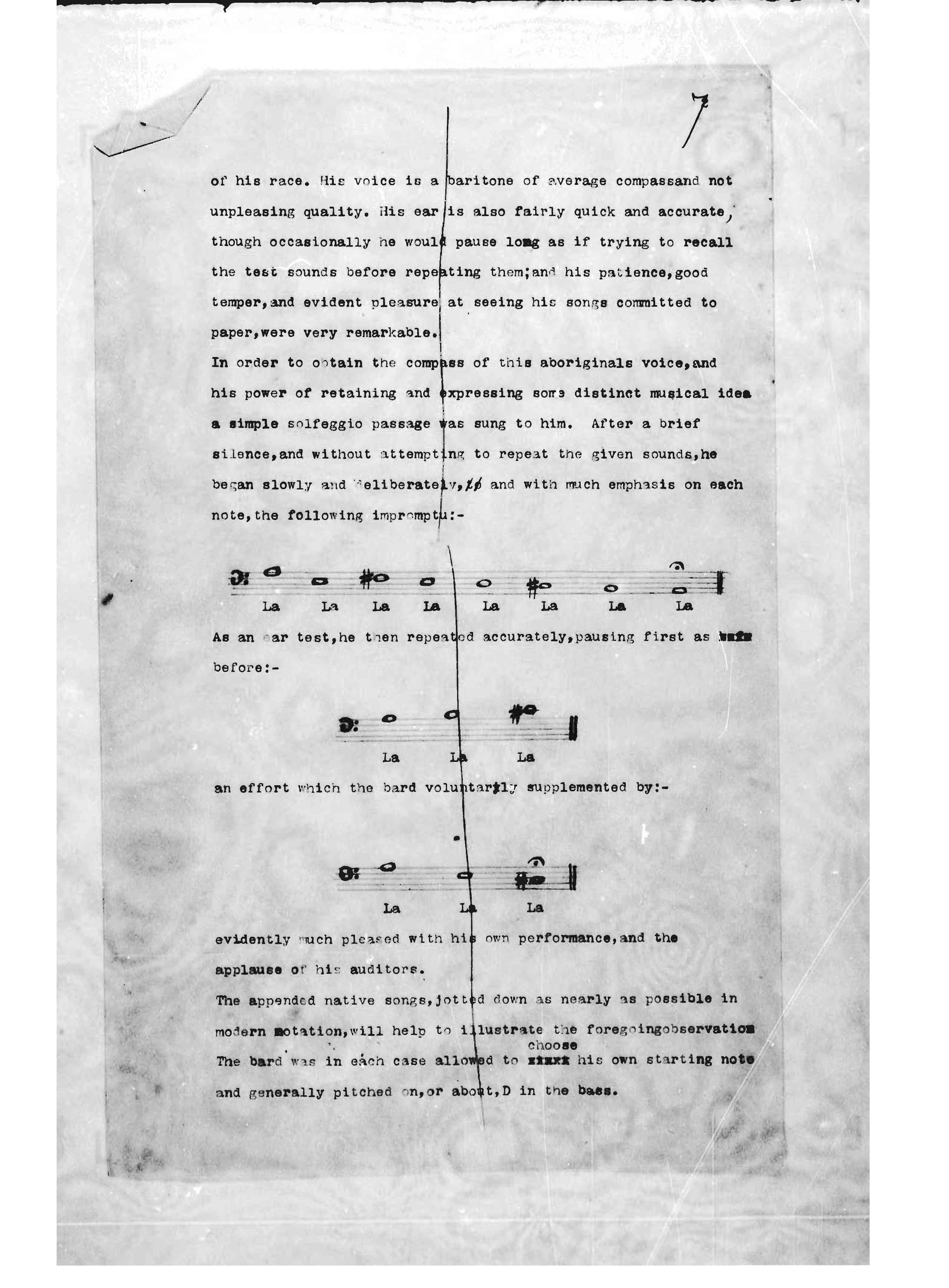Chapter 7 Songs and Songmakers

Transcription - Page 9
7
of his race. His voice is a baritone of average compass and not
unpleasing quality. His ear is also fairly quick and accurate,
though occasionally he would pause long as if trying to recall
the test sounds before repeating them; and his patience, good
temper, and evident pleasure at seeing his songs committed to
paper, were very remarkable.
In order to obtain the compass of this aboriginal's voice, and
his power of retaining and expressing some distinct musical idea
a simple solfeggio passage was sung to him. After a brief
silence, and without attempting to repeat the given sounds, he
began slowly and deliberately and with much emphasis on each
note, the following impromptu:-
[written music]
La La La La La La La La
As an ear test, he then repeated accurately, pausing first as
before:-
[written music]
La La La
an effort which the bard voluntarily supplemented by:-
[wirtten music]
La La La
evidently much pleased with his own performance, and the
applause of his auditors.
The appended native songs, jotted down as nearly as possible in
modern notation, will help to illustrate the foregoing observation
The bard was in each case allowed to choose his own starting note
and generally pitched on, or about, D in the base.
Document Details
